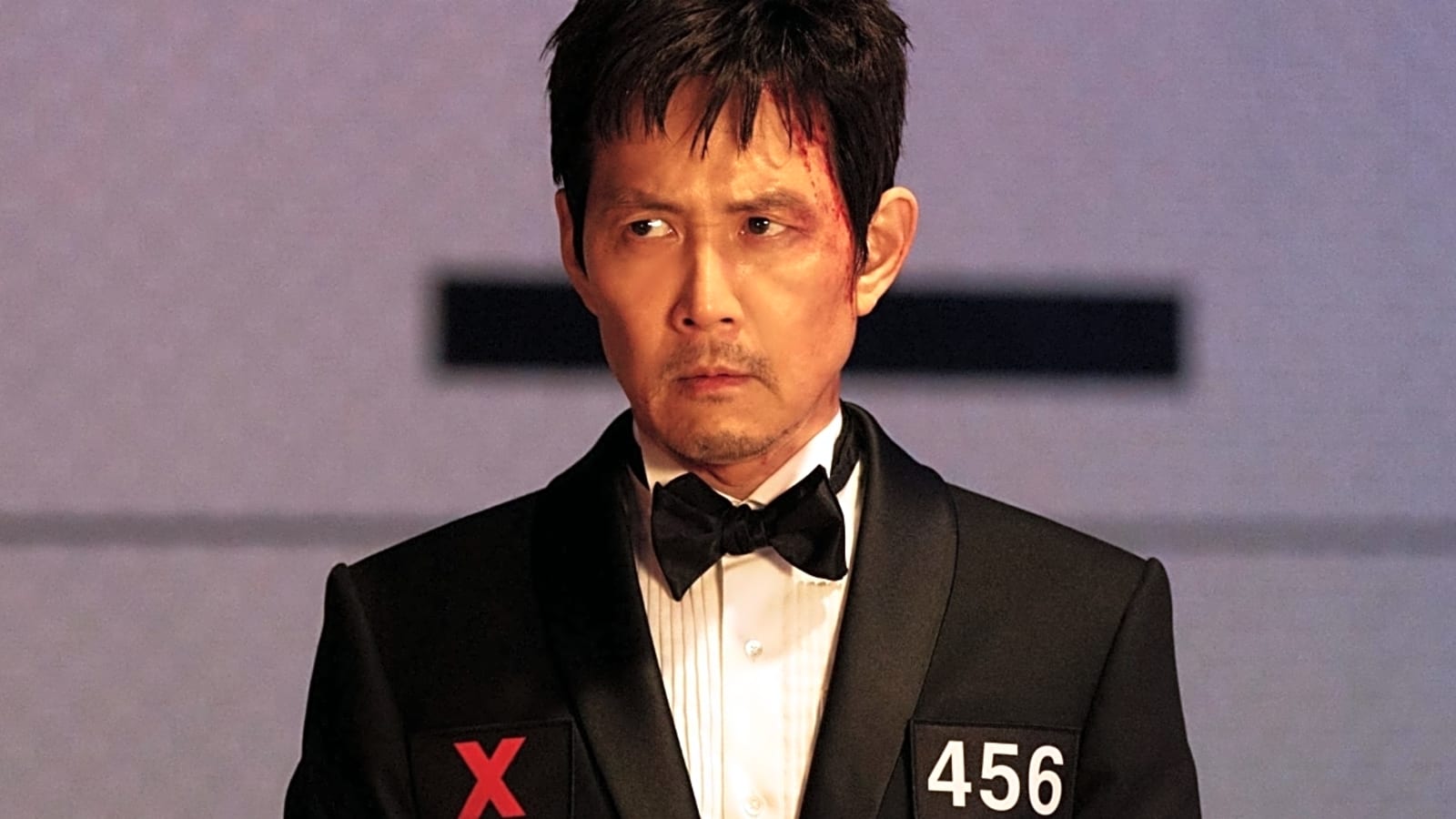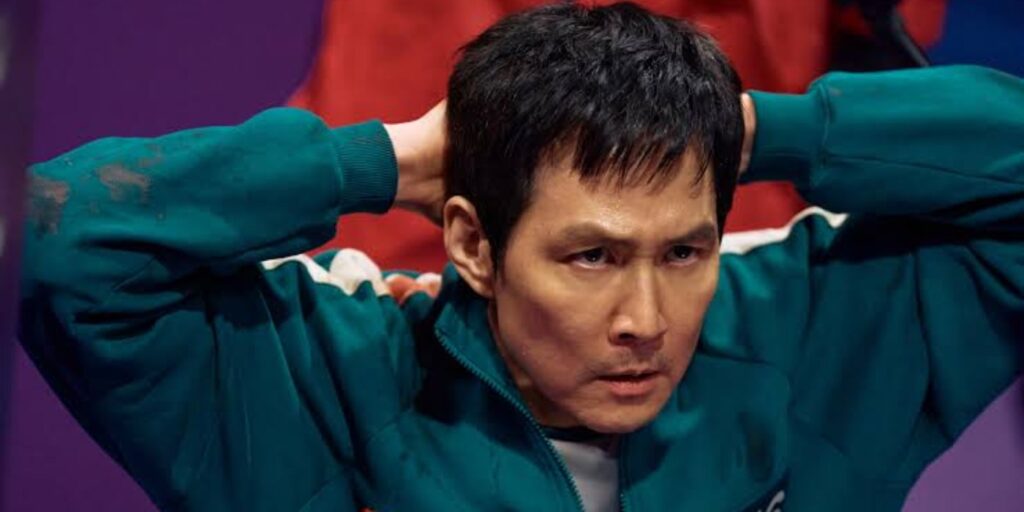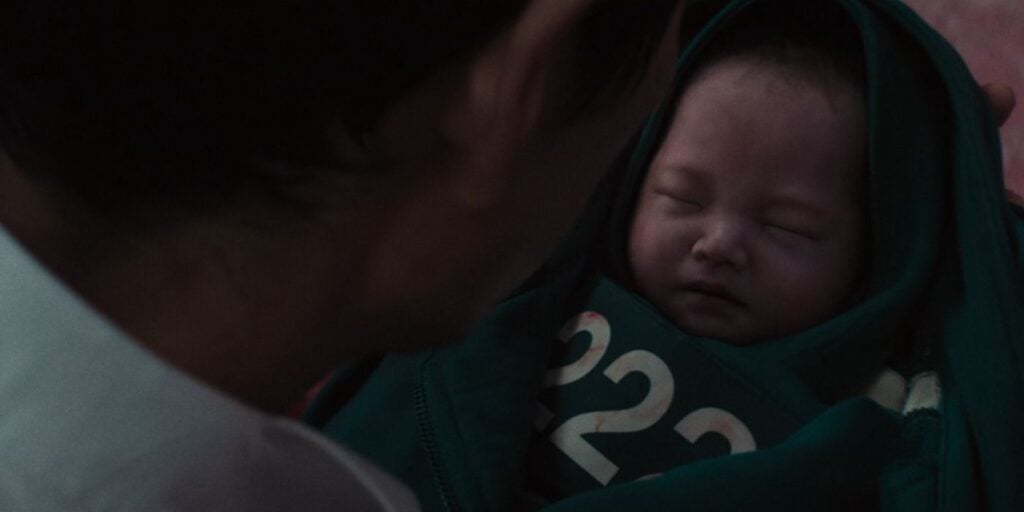
When ‘Squid Game’ first introduced us to Seong Gi-hun in its 2021 premiere episode, he was far from the hero he would one day become. Broke, desperate, and estranged from his daughter, Gi-hun was painted as a man pushed to the brink by the cruelty of the world.
However, as the series unfolded across three emotionally intense seasons, it became clear that Gi-hun wasn’t just a survivor; he was the moral core of a system designed to crush every last shred of humanity. And in ‘Squid Game’ season 3’s devastating finale, everything comes full circle.
Gi-Hun’s Life Comes Full Circle In ‘Squid Game’ Season 3

Far from being a random end, Gi-hun’s final decision, to sacrifice himself and save a newborn child instead of claiming victory, was quietly foreshadowed from the very beginning. When viewers first meet Gi-hun, he’s gambling at a racetrack, betting on horses with the hope of earning enough money to buy his daughter a birthday meal.
It’s a rough introduction; he’s careless with money, emotionally disconnected, and clearly on a path of self-destruction. Yet, it’s in this very first scene that the show plants one of its most important metaphors: horses being used for sport, raced and bet on without regard for their well-being. As ‘Squid Game’ progresses, the comparison between horses and the game’s players becomes glaring.
The masked VIPs, bored billionaires with nothing left to conquer, sit in elaborate viewing rooms wagering on the lives of desperate people. It’s not just entertainment, it’s exploitation. Gi-hun, through his arc, realizes that the games reduce people to pawns, objects, and yes, horses. That’s why his final words, “We are not horses. We are humans. Humans are…”, hit so hard.
He doesn’t get to finish the sentence. And that’s the point. According to creator Hwang Dong-hyuk, the incomplete statement represents the complexity of the human condition. No single line could encompass what humanity is or isn’t. Some people kill for money. Others die for strangers. In that moment, Gi-hun chooses to let his actions do the talking.
Gi-hun’s Faith In Humanity Never Breaks

Through all three seasons, Gi-hun held onto one belief that defined him: that humans, despite their flaws, are capable of choosing compassion over cruelty. His ideological clash with the Front Man and Il-nam was not about survival. It was about what people become when pushed to the edge. Gi-hun believed, desperately, that even in the most horrific circumstances, goodness could prevail.
This belief is tested time and again. In a heartbreaking scene in season 1, Gi-hun begs his childhood friend Sang-woo to stop killing others just for the prize money. In season 2, he tries to use his post-win freedom to expose the games, only to be met with silence and fear. And in season 3, the cycle begins again. However, this time, he knows what’s coming, and he tries to stop it from within.
His final act (giving up his own life to ensure Jun-hee’s baby survives) is a culmination of that belief. It’s not about heroism. It’s about proving that kindness is still possible. That even in a rigged system designed to reward selfishness, someone can still choose to be selfless. And it’s not just Gi-hun. Season 3 subtly shows that others, too, are capable of this choice. Players who protect each other, who share food even when hungry, and who refuse to kill despite knowing it may cost them their lives.
More must-reads:
- The 20 most iconic opening scenes in movie history
- 'I Know What You Did Last Summer' director explains why Lola Tung and Nicholas Alexander Chavez were cut from the film
Customize Your Newsletter
 +
+
Get the latest news and rumors, customized to your favorite sports and teams. Emailed daily. Always free!







